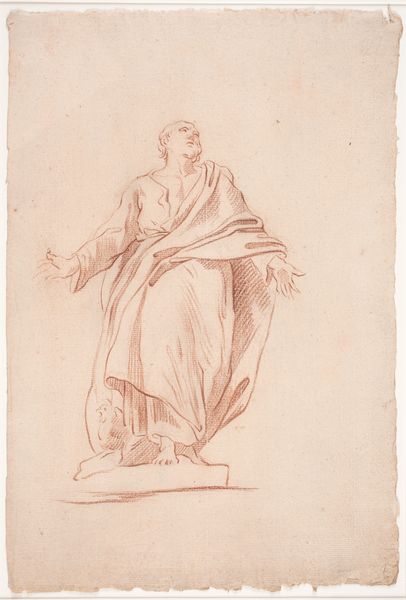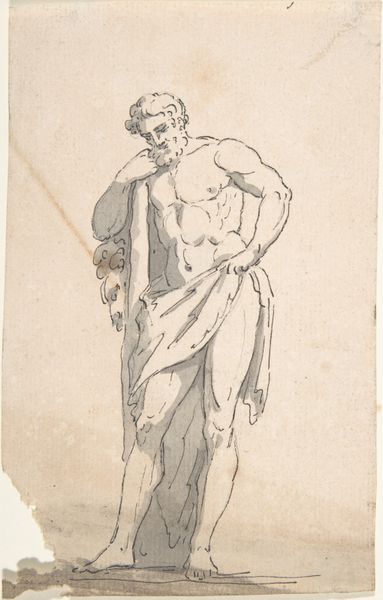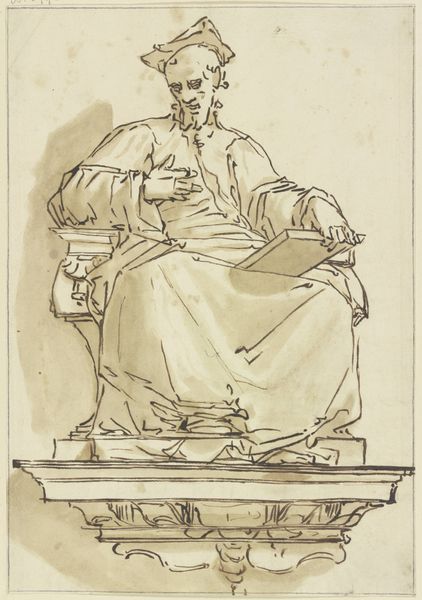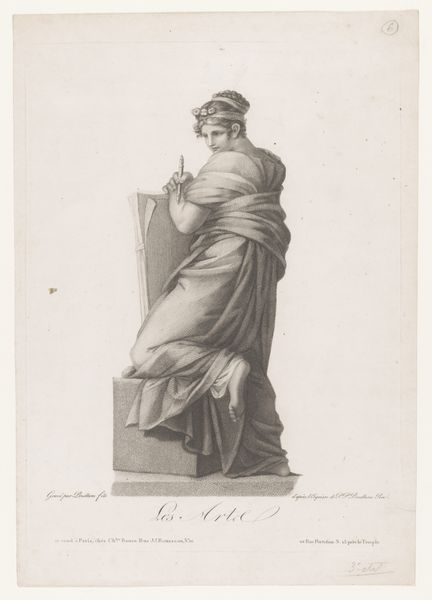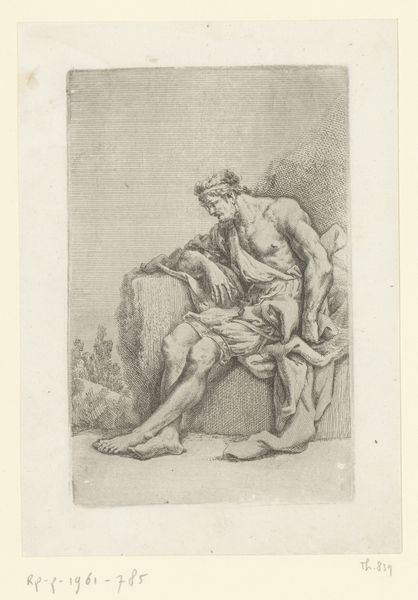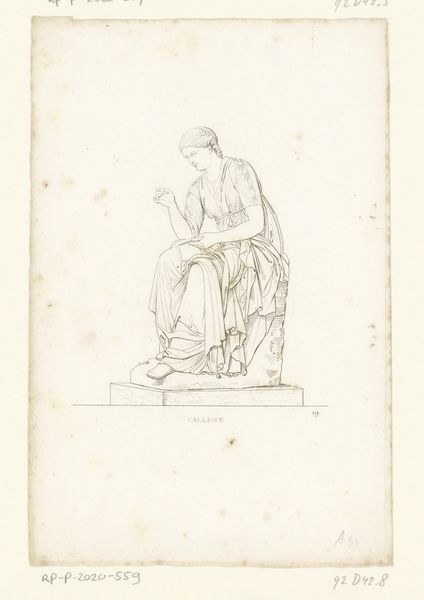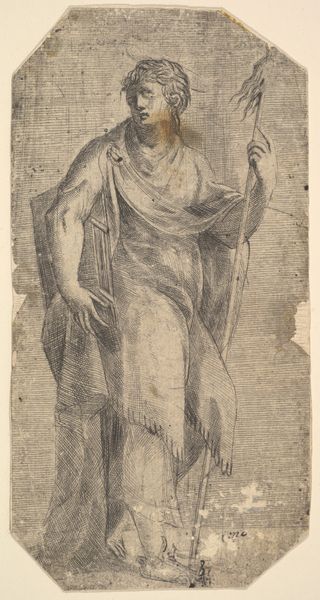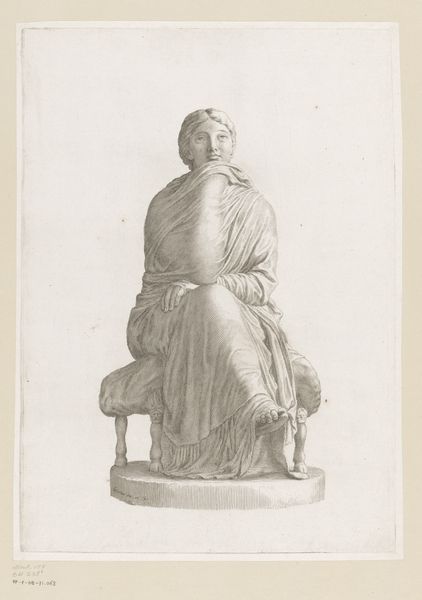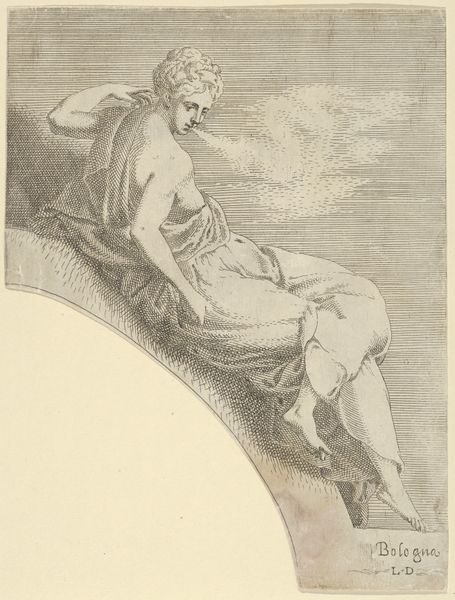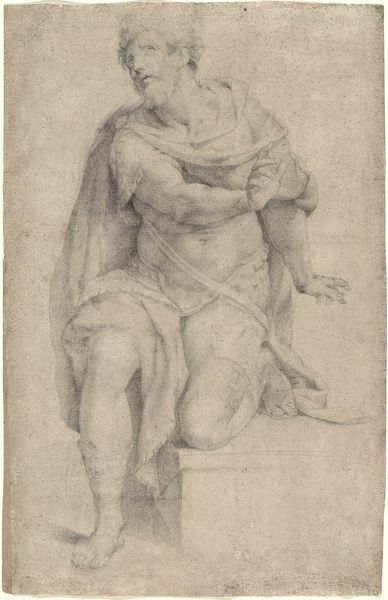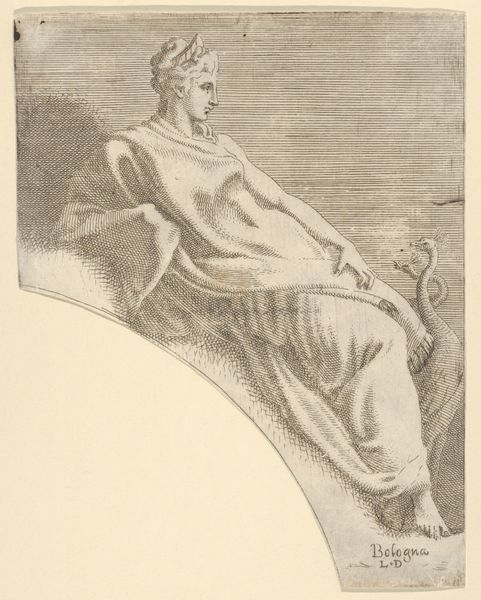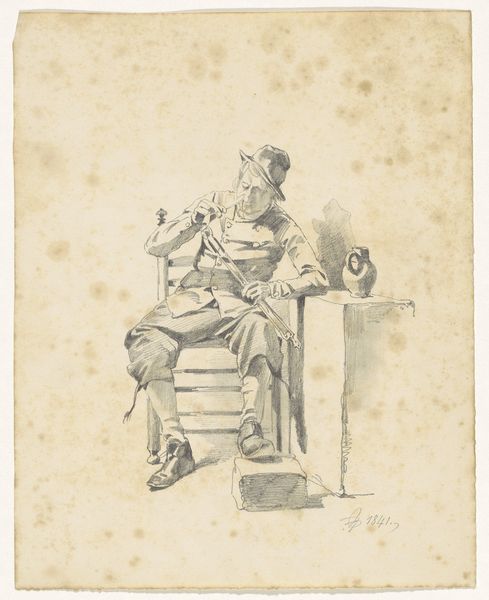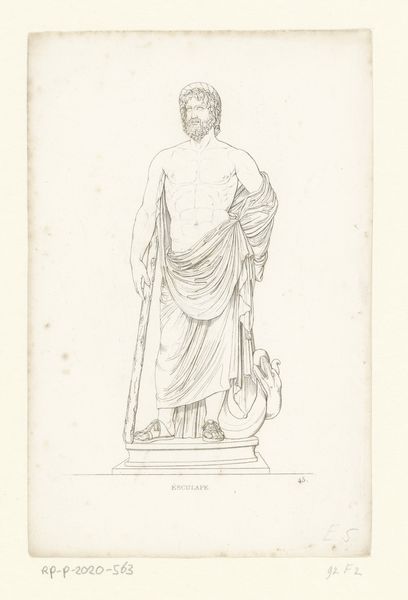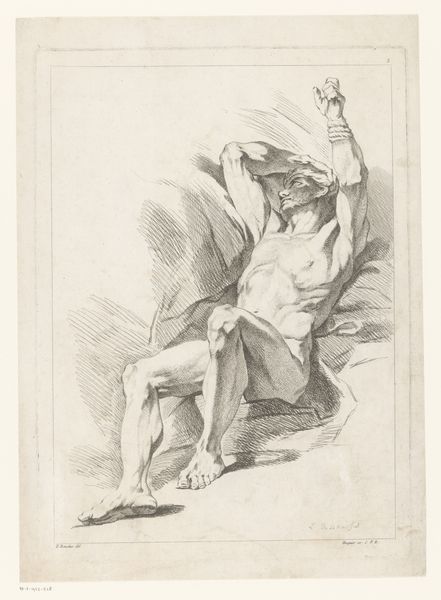
drawing
#
portrait
#
drawing
#
neoclacissism
#
classical-realism
#
academic-art
#
nude
Dimensions: overall: 26.5 x 19.4 cm (10 7/16 x 7 5/8 in.)
Copyright: National Gallery of Art: CC0 1.0
Curator: Well, here we have a fascinating drawing, "The Ludovisi Menander," dating from the mid-18th century, sometime between 1752 and 1756, attributed to Augustin Pajou. It's a beautiful example of academic art using pen and brown ink, with gray wash over black chalk. Quite striking, don't you think? Editor: It's like stepping into a Roman dream. The softness of the gray wash gives it a timeless quality, almost as if the artist was trying to capture not just the form, but the *idea* of a classical figure. There's something heroic yet vulnerable in his posture, his eyes averted. Curator: Precisely. Pajou, a key figure in Neoclassicism, was obviously captivated by classical ideals. This is apparent in the subject’s nudity. It reminds me that a simple turn of the head, a particular shadow can conjure stories of gods, heroes, and a certain Roman swagger. It is academic art to the core, aiming for an aesthetic effect to inspire a sense of virtue and grandeur. Editor: The interesting thing is the symbol. Look how he grasps something. The closed hand could be read as withholding something, maybe power, maybe truth. The classical form combined with the slightly secretive gesture makes the viewer ponder the essence of what is truly seen, not necessarily obvious in that world that inspires itself by nude representation of Roman nobility. Curator: I completely see where you're coming from. Though I lean towards interpreting it less as secrecy and more as thoughtful contemplation, typical of academic work from this era that emphasizes introspection, a characteristic particularly dear to the philosophical trends back then. What do you think about the fact that this piece aims at such effect without adding colour, as though it does not try to overwhelm us by being grandiose and yet maintains itself an inspiring item of work. Editor: Well, it lends the drawing this powerful, evocative presence, almost melancholic. It’s as though the artist wasn't simply recreating an image but was imbuing it with a longing for that lost classical world and how power and knowledge can be corruptive elements, but always an intimate process for men. It's almost as though one can sense a modern dilemma by an inspiration coming from ancient civilizations. Curator: Wonderful insights. The Ludovisi Menander, a study that perhaps unwittingly shows the human condition’s cyclical relationship with time and ideas. Editor: An apt consideration—making "The Ludovisi Menander" not just a picture but an emotional, philosophical echo to think about.
Comments
No comments
Be the first to comment and join the conversation on the ultimate creative platform.
